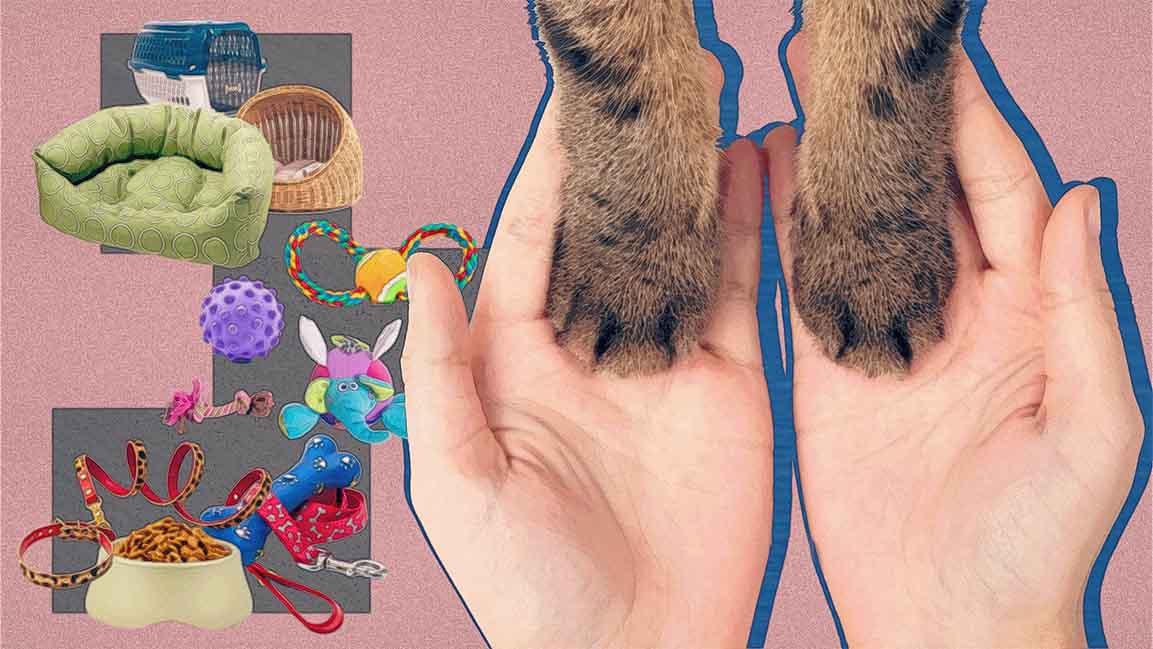- | 9:00 am
This is why the Middle East pet market is off the leash
From designer apparel and customized accessories to grooming and pet gyms, the pet industry is booming

News doesn’t get more peak Dubai than the recent launch of a brand-new private jet service for dogs (and their human companions) who want to fly to London.
For a ticket price of $9,925, the owner and pampered pooch travel in style in the cabin after check-in at a luxury private terminal at Al Maktoum International Airport, complete with a welcome team and grassy area for pre-boarding relaxation – naturally.
While this launch is a fun bit of clickbait, it sits on the periphery of the Middle East pet care industry that has rocketed in the past two years and is making investors take notice.
According to data from Redseer Consulting, the Middle East and North Africa (MENA) pet care market grew at a CAGR of 13% in 2021-22 to reach a whopping $800 million in 2022 – much higher when compared to other industries, such as retail, where the growth rate for 2021-22 was around 5-7%.
GROWTH AND APPEAL
In the UAE alone, the pet care industry is worth $300 million (and growing), and the country has around 1.5 million pet owners (or parents as they prefer to be known) – according to stats from the recent Pet World Arabia exhibition in Dubai. Numbers not to be sniffed at.
In the wider GCC, analysts predict growth in the pet industry overall will remain in double digits for the rest of the decade.
This boom is an unpredicted aftereffect of the pandemic. The 2020 health crisis – with its accompanying feelings of isolation, loneliness, and endless hours of online browsing – made the appeal of having a four-legged pal to care for (and talk to, if pet owners were honest) stronger than ever.
Pet adoption rates soared, and a smorgasbord of pet-related businesses emerged. Everything from designer apparel and customized accessories to grooming, daycare, pet gyms, boarding, training, and pet-friendly accommodation.
Then there is the emergence of specialized pet clinics and practices catering to specific needs such as orthopedics, ophthalmology, dermatology, and dentistry, providing specialized care for pets – not to mention alternative therapies such as acupuncture, physiotherapy, and hydrotherapy.
Just a few weeks ago, My Second Home – the world’s largest indoor dog park and Dubai’s first luxury pet resort – announced it is set to launch a new daycare and boarding facility exclusively for small dogs as part of its $10 million expansion plan.
Scheduled to open this winter, the 46,000 sq ft pet destination will be the third resort-style venue for My Second Home, which launched its first luxury home-from-home dog care brand in Dubai Investments Park in 2015, followed by a sister venue in Al Quoz in 2021. Located at DIP 2, the new facility will feature indoor pools, relaxation areas, and extensive play space.
SOARING PET FOOD MARKET
And the pet care announcements keep coming.
Premium supermarket brands Spinneys and Waitrose have just partnered in the UAE with Rory’s Apawthecary to sell premium organic dog grooming products, including dog shampoo, dog conditioner, ear cleanser, aromatherapy spray, and an assortment of high-quality pet accessories including dog snoods, towels, and blankets. The brand plans to expand into Spinneys and Waitrose stores across Oman.
Then there’s the soaring pet food market.
In the Middle East, recent forecasts say it will hit $4.48 billion (in retail prices) by 2025, driven by a demand for high-quality ingredients and creative branding.
A good example is food manufacturer Percuro, which prioritizes health and sustainability in its recipes, focusing on anti-inflammatory ingredients and full traceability.
“Our recipe is formulated from the bottom-up, meaning that every ingredient is chosen through the lens of health and sustainability, with a special focus on anti-inflammatory ingredients,” said Ventzi Naydenova, Percuro’s Head of Distribution GCC.
“Furthermore, our traceability and quality are hard to match. Our protein source – the black soldier fly larvae – is grown in an award-winning insect factory in the Netherlands, allowing for 100% transparency of all environmental factors – over the full fly lifecycle, the risk of foodborne illnesses is essentially zero.”
Looking at the pet care market development by country in the region, Redseer Consulting data shows the UAE is leading the way with spending per pet in the country three times higher than in Saudi Arabia, for example.
In terms of the best-performing regional stores, the main players are Pet Arabia (Bahrain), Egy Puppy (Egypt), Pets in the City (Lebanon), and The Petshop (UAE), which PE firm Aliph Capital recently bought.
Interestingly, despite the growing number of physical retailers selling products, the online pet care industry is outpacing the offline market, driven by ‘e-tail’ platforms expanding into the pet food sector—another ongoing effect of the pandemic.








































